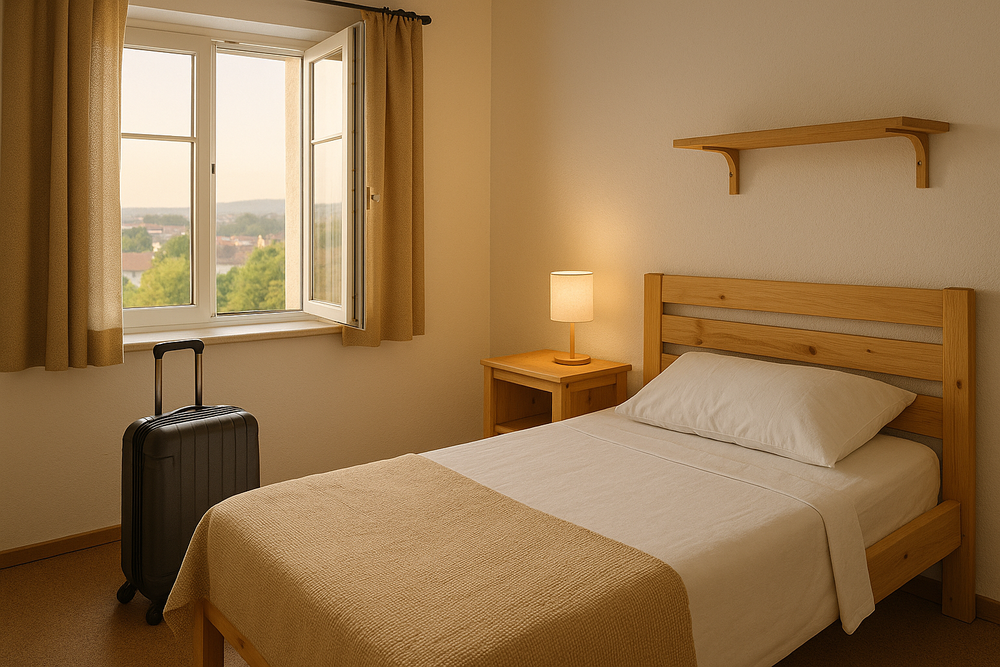Solo Travel: Why More People Are Choosing to Go It Alone
Riley Patel
2025-10-18
6 min read

In recent years, solo travel has surged in popularity, with more and more people choosing to explore the world on their own. From young professionals taking gap years to retirees seeking adventure, the appeal of traveling alone is undeniable. Solo travel offers a unique sense of freedom and self-discovery that’s hard to achieve when journeying with friends or family. It allows travelers to focus entirely on their interests, explore at their own pace, and create experiences that are uniquely their own. One of the most significant benefits of solo travel is the freedom it provides. When you travel with others, decisions about where to go, what to eat, and how to spend your time often require compromise. Solo travel removes that challenge, giving you complete control over your itinerary. Want to spend the entire day at a museum or linger at a quiet café with a book? You can. Feel like taking a spontaneous detour to a remote village? Go for it. This autonomy allows travelers to immerse themselves fully in experiences that resonate most with them. Beyond freedom, personal growth is another reason people are increasingly drawn to solo travel. Being alone in unfamiliar environments pushes individuals out of their comfort zones. Navigating foreign transportation systems, communicating across language barriers, or finding accommodations independently builds confidence and resilience. Many solo travelers describe their journeys as transformative, reporting a stronger sense of self-reliance and self-awareness after returning home. Traveling alone often forces introspection, encouraging people to reflect on what truly matters to them and helping them develop a clearer sense of identity.
Interestingly, solo travel can also enhance social connections. It might seem counterintuitive, but traveling alone often encourages more interaction with locals and other travelers. Without a familiar companion by your side, you’re more likely to start conversations, join group tours, or attend community events. These interactions can lead to meaningful connections, cultural exchanges, and even lifelong friendships. Many solo travelers find that the friendships and memories made on the road can be just as valuable as the destinations themselves.
Of course, safety is a natural concern for anyone considering solo travel. While traveling alone requires careful planning, most risks can be managed with simple precautions.
Choosing well-reviewed accommodations, staying aware of surroundings, and keeping in touch with friends or family are essential. Using technology, such as GPS tracking apps or travel forums, can provide additional peace of mind. Researching local customs, dress codes, and travel advisories is also crucial, ensuring a secure and enjoyable experience. For many, the sense of empowerment that comes from managing these risks independently is another rewarding aspect of solo travel.

Another driving factor behind the rise of solo travel is the desire for authentic experiences. When traveling alone, people are more likely to step off the beaten path and explore local culture in a deeper way. You might join a cooking class, volunteer in the community, or participate in local festivals—all experiences that can feel less accessible when traveling in a group. Solo travelers often report that their trips feel more immersive and meaningful because they are actively seeking connections with the places they visit rather than moving through a predetermined itinerary.
Technology has also played a pivotal role in making solo travel more accessible. Travel apps, social media, and online booking platforms allow individuals to plan trips, navigate foreign cities, and connect with other travelers more easily than ever before. There are even specialized platforms for solo travelers to meet like-minded adventurers, share tips, or join group activities safely. These tools have reduced barriers and increased confidence for those who might otherwise hesitate to travel alone.
Financial flexibility is another advantage. Traveling alone allows people to make spending choices that suit their personal budget and interests. You can splurge on experiences that matter most to you without worrying about accommodating someone else’s preferences. Likewise, solo travel often encourages mindful budgeting and planning, as each expense is carefully considered. This control over finances, combined with the freedom to make decisions independently, makes solo travel both empowering and enjoyable.
Ultimately, the growing popularity of solo travel reflects a broader cultural shift toward self-discovery, independence, and adventure. More people are realizing that traveling alone doesn’t mean being lonely—it can mean freedom, growth, and connection on your own terms. Whether it’s a weekend getaway to a nearby city or a months-long journey across continents, solo travel provides opportunities to explore the world, meet new people, and learn more about oneself than any guided tour or group trip could offer.
For those considering their first solo trip, it’s important to start small and plan carefully. Choose destinations known for safety and traveler-friendly amenities, make detailed itineraries but remain flexible, and embrace the experience fully. Over time, solo travel often becomes more than a vacation—it becomes a path to self-discovery, confidence, and unforgettable memories. In a world that often emphasizes constant connectivity and obligation, solo travel offers a rare chance to slow down, focus inward, and explore without compromise. It’s no wonder that more people are choosing to go it alone, embracing the challenges and rewards that come with charting their own course.



